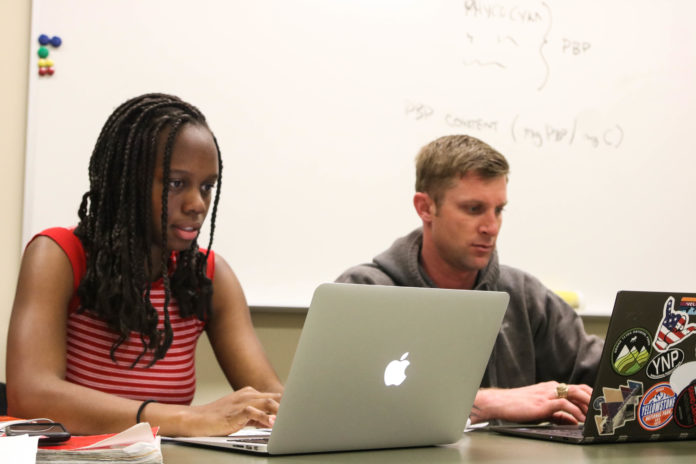
With the use of technology increasing, especially on college campuses, research shows the physical effects it can have on not only developing bodies but adult bodies as well. It can harm the eyes and what most people don’t know is it can affect the body as a whole.
Researchers from Child Development conducted a study that shows adolescents who used their devices more tended to have increased problematic behavior such as fighting and lying.
According to the study, for a child who is still in development, behavioral problems can lead to even more problems in adulthood. In adulthood, blue light, which is light that typically comes from electronic devices, can lead to loss of eyesight. Excessive use of technology can also lead to the development of hyperactivity disorder and other attention issues.
College students are at high risk for these effects because of the amount of time they spend on computers. According to the National Survey of Student Engagement the average student spends about 17 hours weekly and an average of 18.2 hours for computer science majors.
Joilet, Ill. sophomore Ethan Goolsby is a film and digital media major and is often exposed to blue light for long periods of time.
“As a FDM major, I’m on my computer a lot editing and looking over footage. For me it hurts my back having to sit in the same position for a long period of time and my eyes hurt from looking at the screen,”
Blue Light which is often found in LED televisions, computers and fluorescent lights have a short wavelength that can affect vision. This may lead to irritated and dry eyes and even trouble focusing.
According to a Harvard study on the effects of blue light, precautions that people can take is to decrease time on their device before bed. Being exposed to blue light can boost alertness and keep people awake at night, resulting in a poor night’s sleep. This can decrease productivity and alertness during the day. Secondly, people can turn their device to “night mode”. For example, Apple devices have a setting which turns off the blue light. This can be beneficial especially for late night study sessions. Lastly, investing in anti-reflective lenses can help decrease the amount of glare and block blue light from devices.
Arlington sophomore Natalie Reese is a pre-nursing major and spends the majority of her time online studying and prepping for nursing school next year.
“I think they’re [anti-reflective glasses] a good idea because blue light can be very harmful to the eyes over time. I have anti-glare glasses and those work well enough for me,” Reese said.





